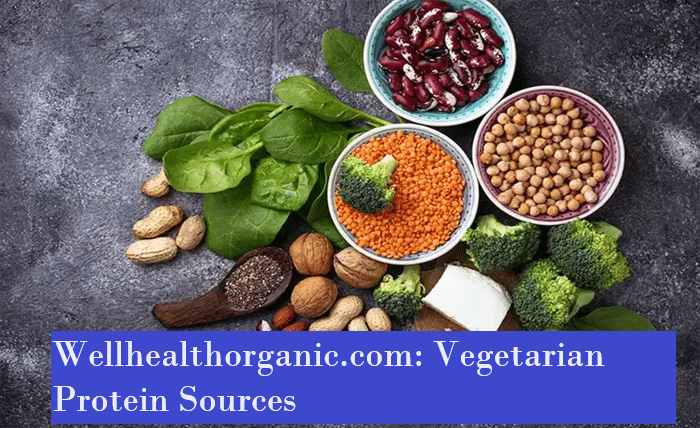- Muscle Growth: Protein consumption enhances muscle protein synthesis, aiding in muscle growth and increasing strength and stamina.
- Metabolism Booster: Protein boosts metabolism and aids weight loss by building muscle mass, which increases fat burning.
- Immunity Boost: Regular protein intake supports the production of hemoglobin, immunoglobulins, and enzymes, boosting immunity and aiding in tissue repair and recovery.
- Aging Support: Adequate protein intake helps reduce age-related muscle loss and health issues, maintaining joint health over time.
What Are The Effects of Protein Deficiency?
- Growth and Muscle Impact: Protein deficiency can cause slow growth and muscle loss.
- Poor Wound Healing: Insufficient protein may reduce collagen production, leading to poor wound healing and delayed recovery.
- Nutritional Diseases: Kwashiorkor and Marasmus mainly in children.
- Sarcopenia: This condition involves loss of skeletal muscle mass and strength.
- Protein Energy Malnutrition: Common in India, PEM significantly affects child health, leading to high rates of stunting, wasting, and underweight conditions among children.
How Much Protein Do Indians Need?
According to ICMR 2020 guidelines, the daily intake should be 0.8 to 1g of protein per kg body weight, meaning a person weighing 70 kg needs about 70 grams of protein daily.
Don’t miss reading: Complete Guide: How To Build Muscles Effectively
Common Vegetarian Protein Sources In Indian Households
1. Legumes: Beans, Lentils, and Peas
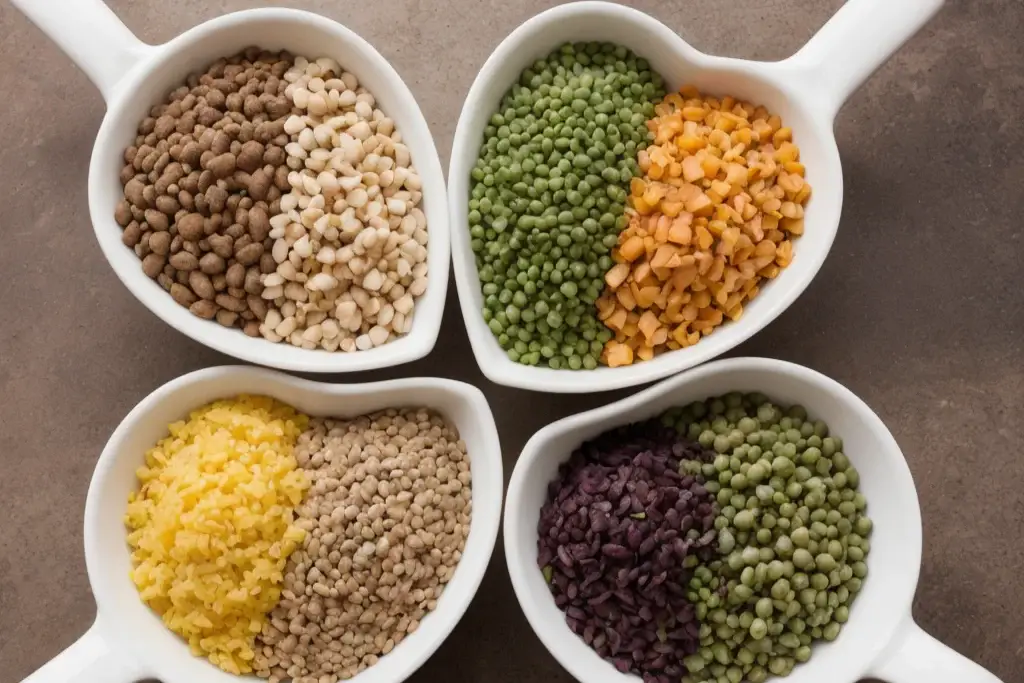
Legumes are a powerhouse of protein, fiber, and various nutrients.
Research published in the Journal of the Academy of Nutrition and Dietetics highlights legumes as not only a rich source of protein but also beneficial for our heart health and diabetes prevention.
Nutritional Profile of Common Indian Legumes: Vegetarian Protein Sources
| Item | Protein Content (per 100g) | Calories (per 100g) | Fiber Content (per 100g) | Important Micronutrient |
|---|---|---|---|---|
| Kidney Beans | 8.9g | 127 | 6.4g | Folate |
| Black Gram | 25g | 341 | 4.8g | Iron |
| Green Peas | 5g | 81 | 5.1g | Vitamin C |
| Chickpeas | 19g | 364 | 17g | Iron |
| Mung Beans | 24g | 347 | 16.3g | Folate |
| Red Lentils | 26g | 116 | 7.9g | Folate |
| Soybeans | 36g | 446 | 9.3g | Iron |
2. Quinoa: The Complete Protein

Unlike many plant proteins, quinoa seeds are considered a complete protein, containing all nine essential amino acids.
A study in the Journal of Current Opinion in Food Science points out quinoa’s protein quality and its role in improving the nutritional content of a vegetarian diet.
Nutritional Content of Quinoa: Vegetarian Protein Sources
| Nutrient | Amount per 100g |
|---|---|
| Protein | 4.4g |
| Calories | 120 |
| Fiber | 2.8g |
| Magnesium | 64mg |
| Iron | 1.5mg |
| Calcium | 17 mg |
3. Nuts and Seeds: Compact Nutrient Dynamos
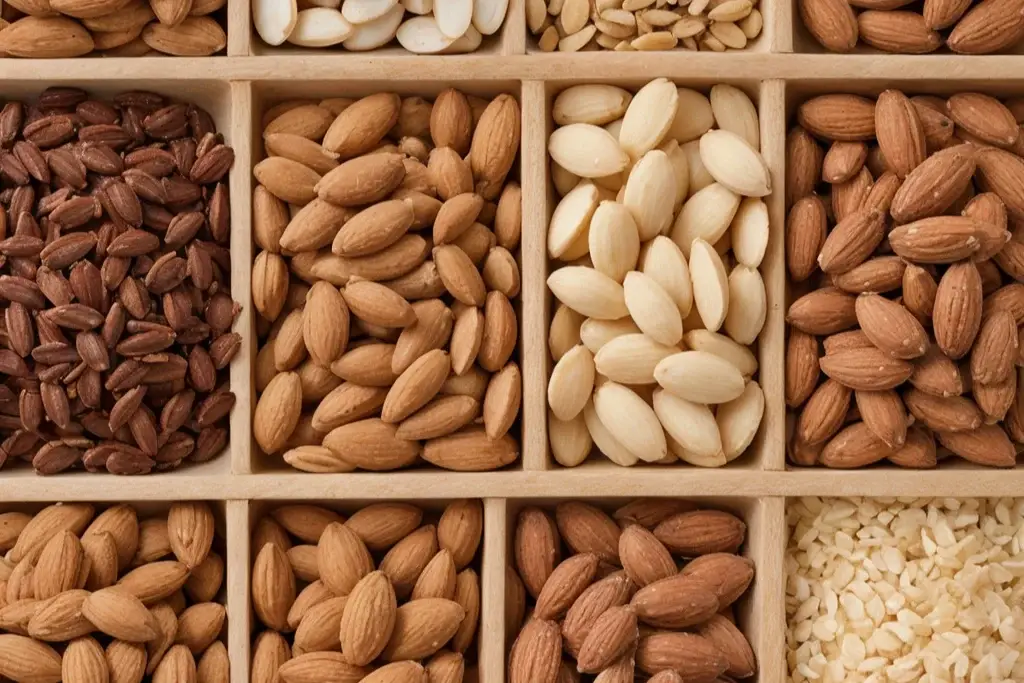
Nuts and seeds are not only protein-rich but also provide healthy fats, vitamins, and minerals. Almonds, for example, offer around 6 grams of protein per ounce.
The Americal diabetes association notes that incorporating nuts into your diet can lower the risk of cardiovascular disease.
Nutritional and Health Benefits of Common Nuts and Seeds: Vegetarian Protein Sources
| Nut/Seed Type | Protein Content per 100g | Health Benefits |
|---|---|---|
| Almonds | 21.4g | High in Vitamin E, reduces heart disease risk |
| Walnuts | 14.6g | Rich in Omega-3, supports brain health |
| Pistachios | 20.5g | Lowers LDL cholesterol, good for heart health |
| Cashews | 17.4g | Magnesium-rich supports heart and liver health |
| Flaxseeds | 18g | High in Omega-3 fatty acids, anti-inflammatory |
| Pumpkin Seeds | 30g | Magnesium-rich, supports heart and liver health |
| Chia Seeds | 17g | High in fiber, promotes weight management |
4. Soy Products: Tofu, Tempeh, and Edamame
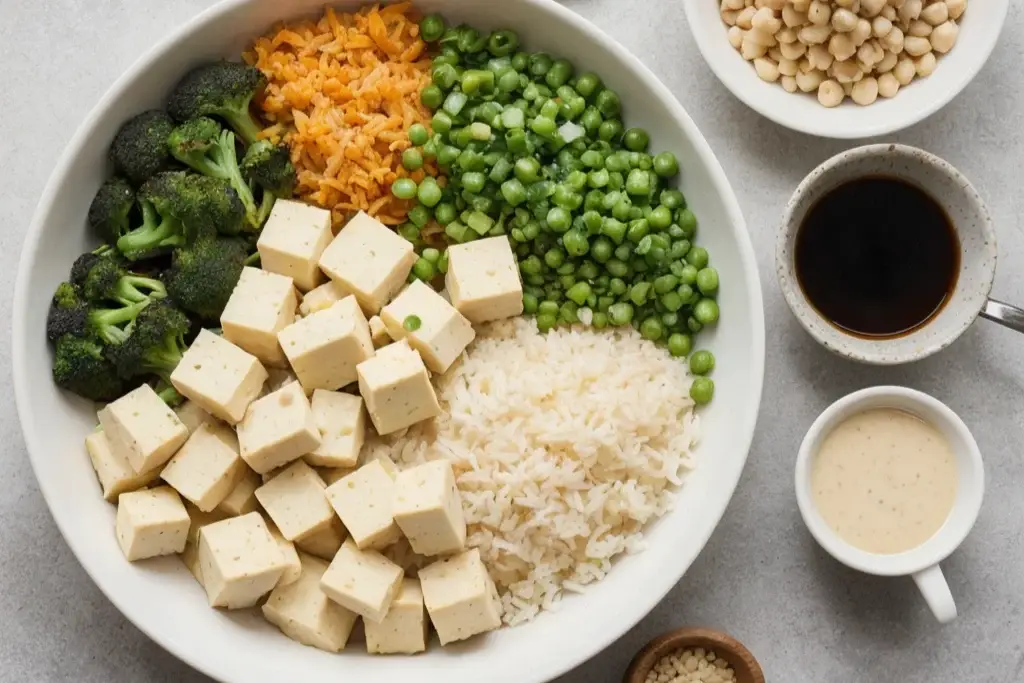
Soy products are versatile, high in protein, and can be great meat substitutes. Tofu, for instance, packs about 10 grams of protein per half-cup serving.
A report published in the American Journal of Clinical Nutrition supports soy’s role in a healthy vegetarian diet, emphasizing its nutritional benefits and versatility.
Wellhealthorganic Vegetarian Protein Sources:
Nutritional Profile and Benefits of Common Soy Products: Vegetarian Protein Sources
| Soy Product | Protein Content per 100g | Calories per 100g | Key Nutrients | Dietary Benefits |
|---|---|---|---|---|
| Tofu | 17g | 144 | High in calcium and iron | Supports bone health, good for heart health |
| Tempeh | 20g | 192 | Rich in protein and fiber | Aids digestive health, beneficial for muscle growth |
| Edamame | 12g | 121 | High in fiber, vitamin K, folate | Lowers cholesterol, may help in blood pressure management |
5. Dairy Products: Cheese, Yogurt, and Milk
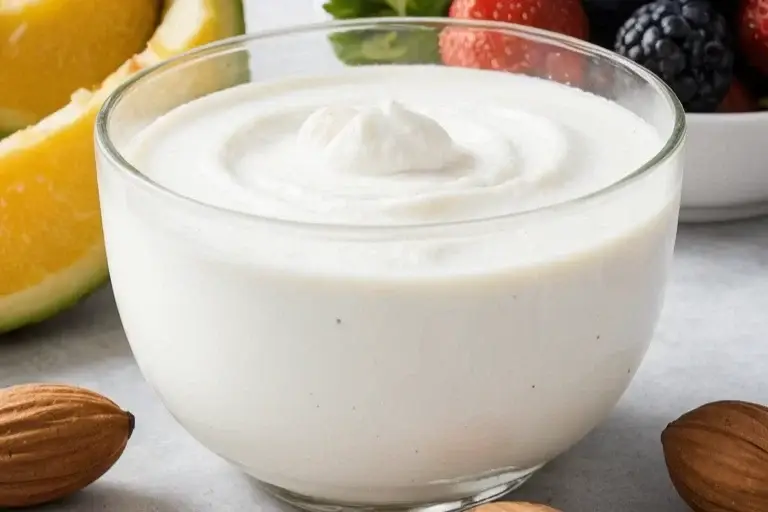
For lacto-vegetarians, dairy products are a significant protein source. Greek yogurt can contain up to 20 grams of protein per cup.
Research published in the journal Nutrients outlines the role of dairy in providing high-quality protein and essential nutrients.
Nutritional Profile of Common Dairy Products: Cheese, Yogurt, Buffalo Milk, Cow Milk and Goat Milk: Vegetarian Protein Sources
| Dairy Product | Protein Content per 100g | Calories per 100g | Key Nutrients | Health Benefits |
|---|---|---|---|---|
| Cheese | 25g | 429 | High in calcium, phosphorus, Vitamin B12 | Supports bone health, and may lower blood pressure |
| Yogurt | 3.5g | 61 | Rich in calcium, probiotics, Vitamin B2, Vitamin B12 | Supports digestive health, boosts immune system |
| Buffalo Milk | 4.3g | 117 | Higher in fat, calcium, and protein than cow milk | Supports bone strength, more beneficial for growth |
| Cow Milk | 3.2g | 67 | High in calcium, Vitamin D, potassium, Vitamin B12 | Supports bone health, may lower blood pressure |
| Goat Milk | 3.3g | 72 | High in calcium, phosphorus, and essential fatty acids | Supports digestive health, enhances nutrient absorption, often easier to digest than cow’s milk. |

